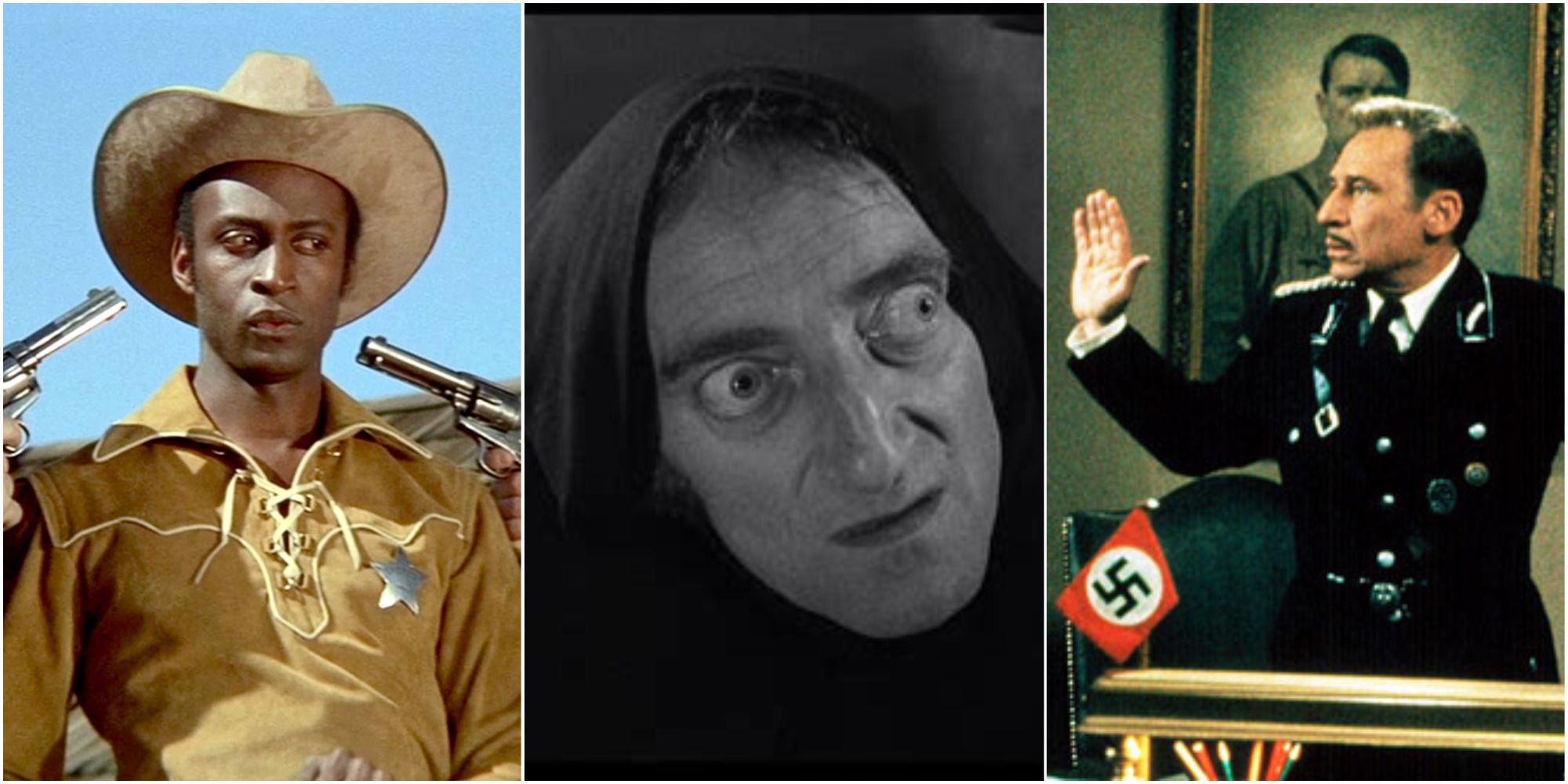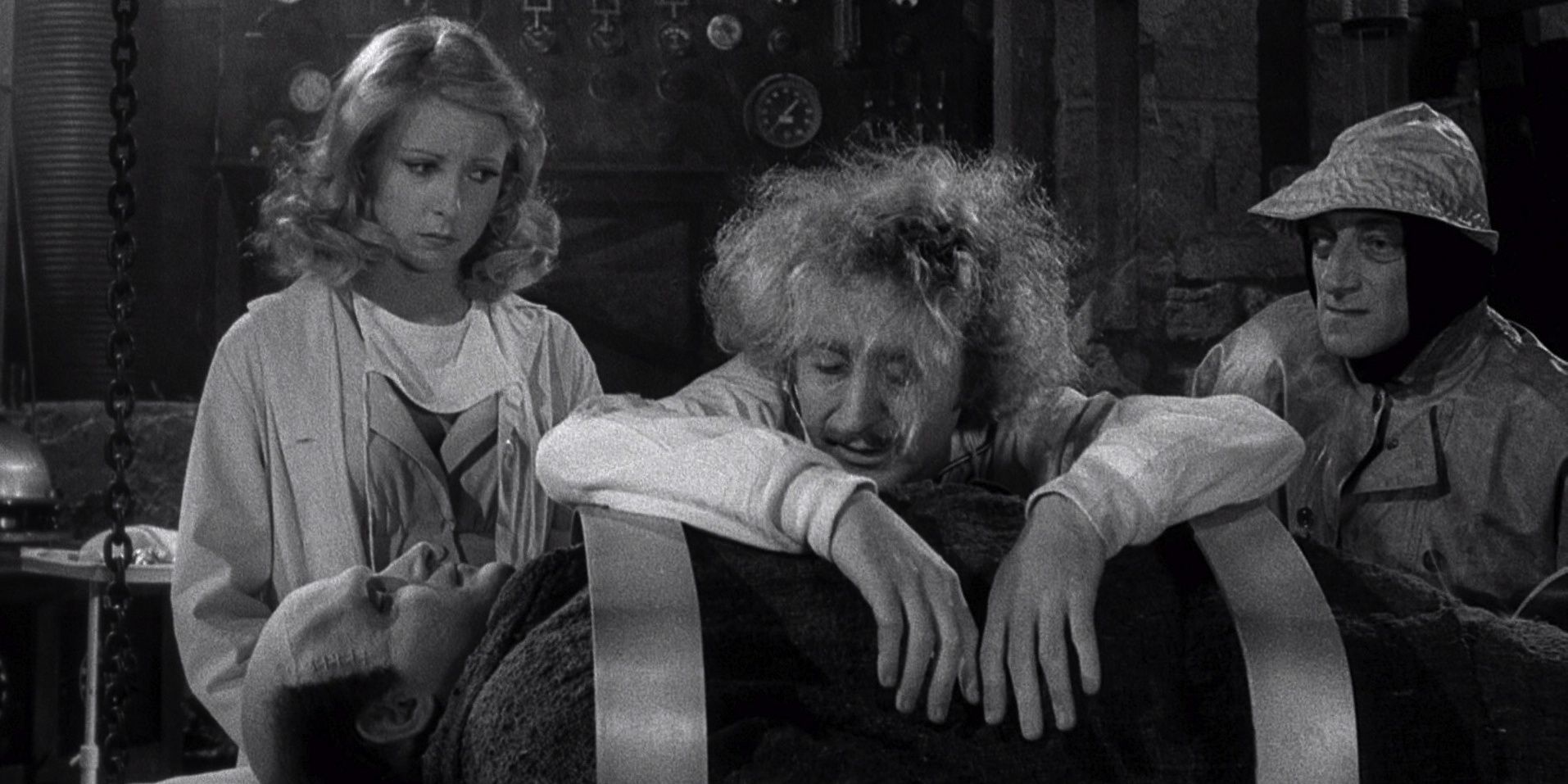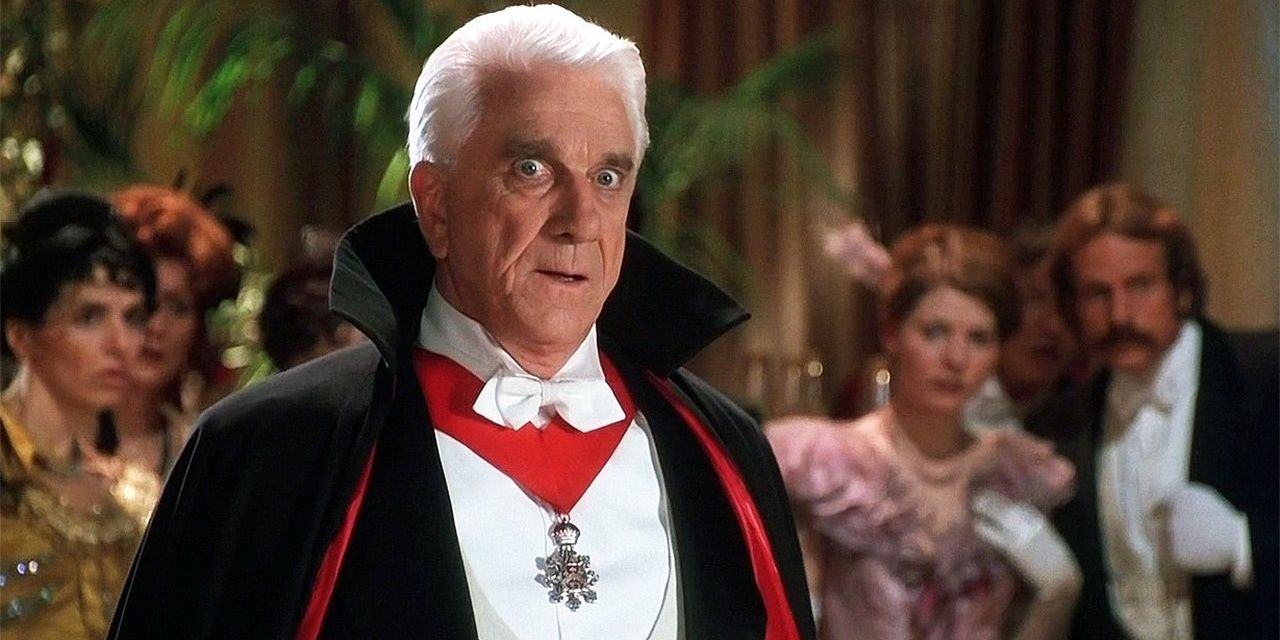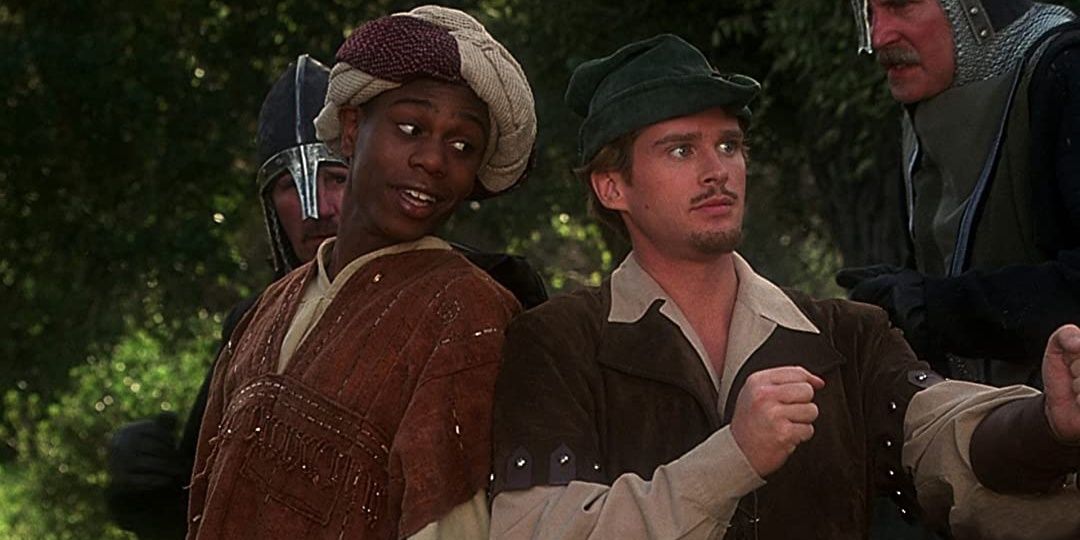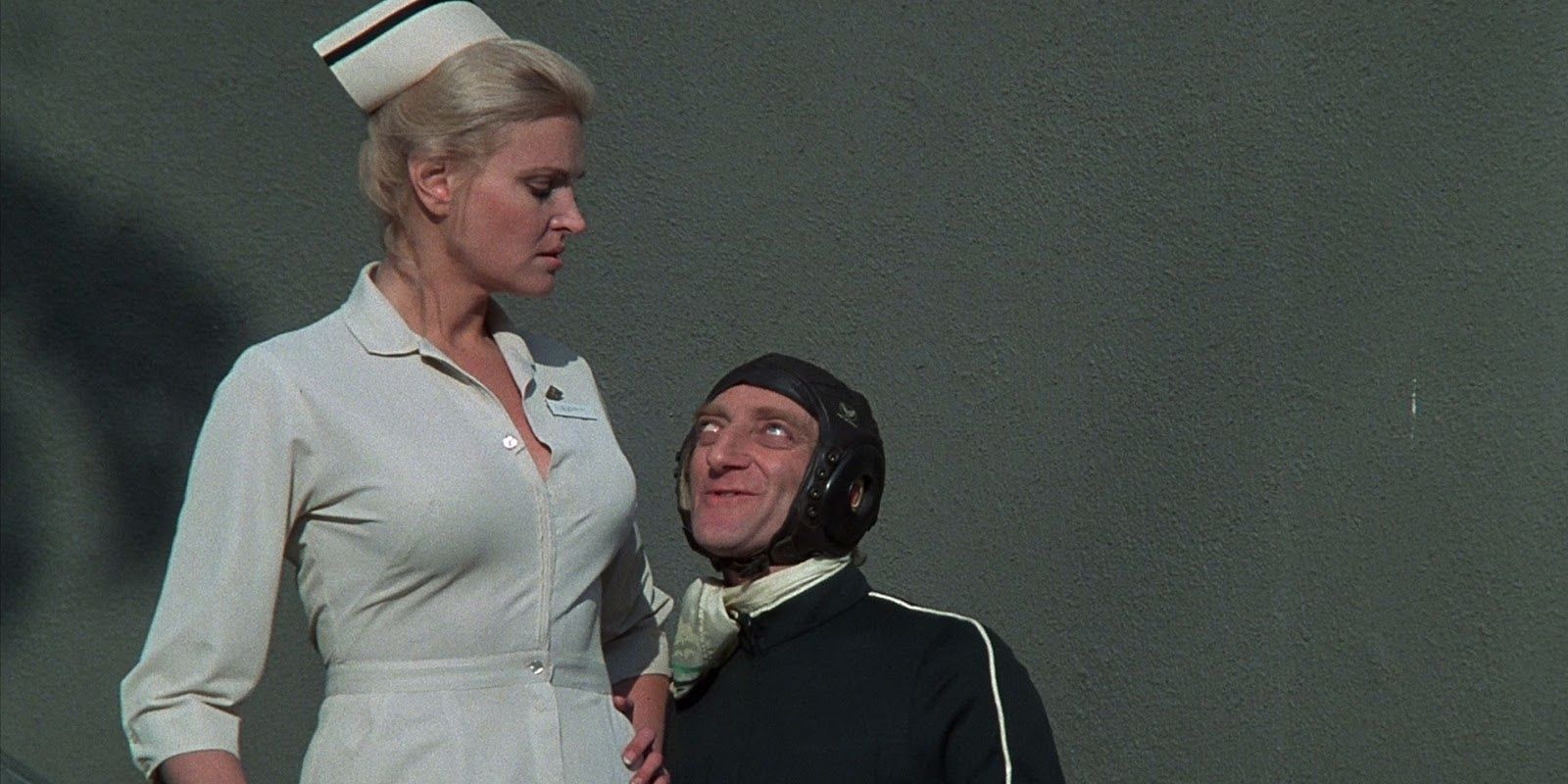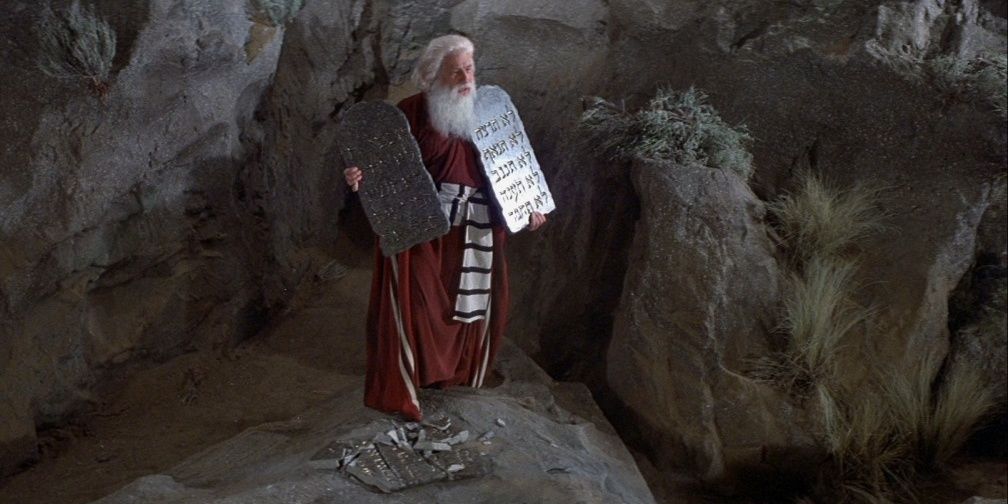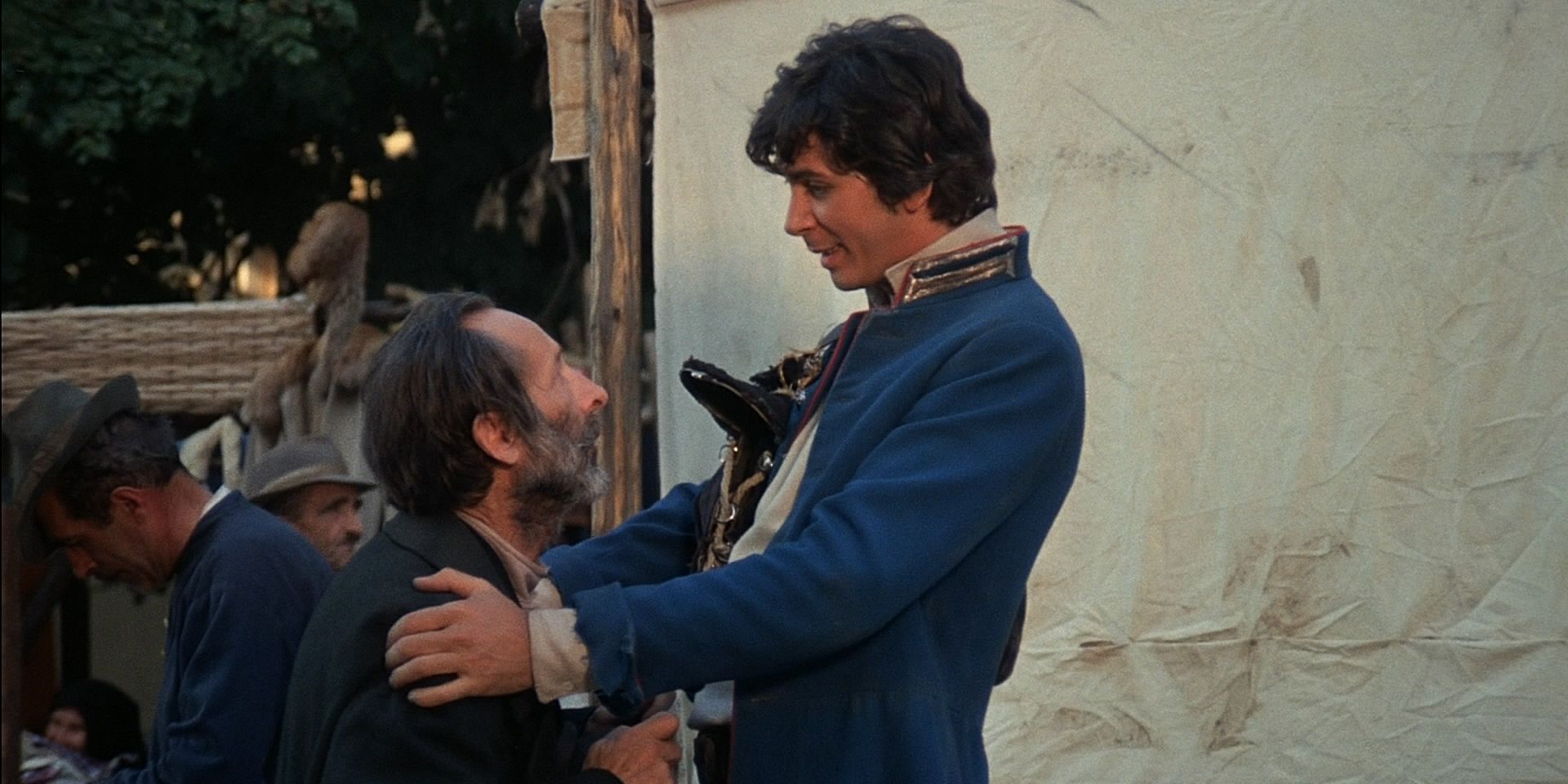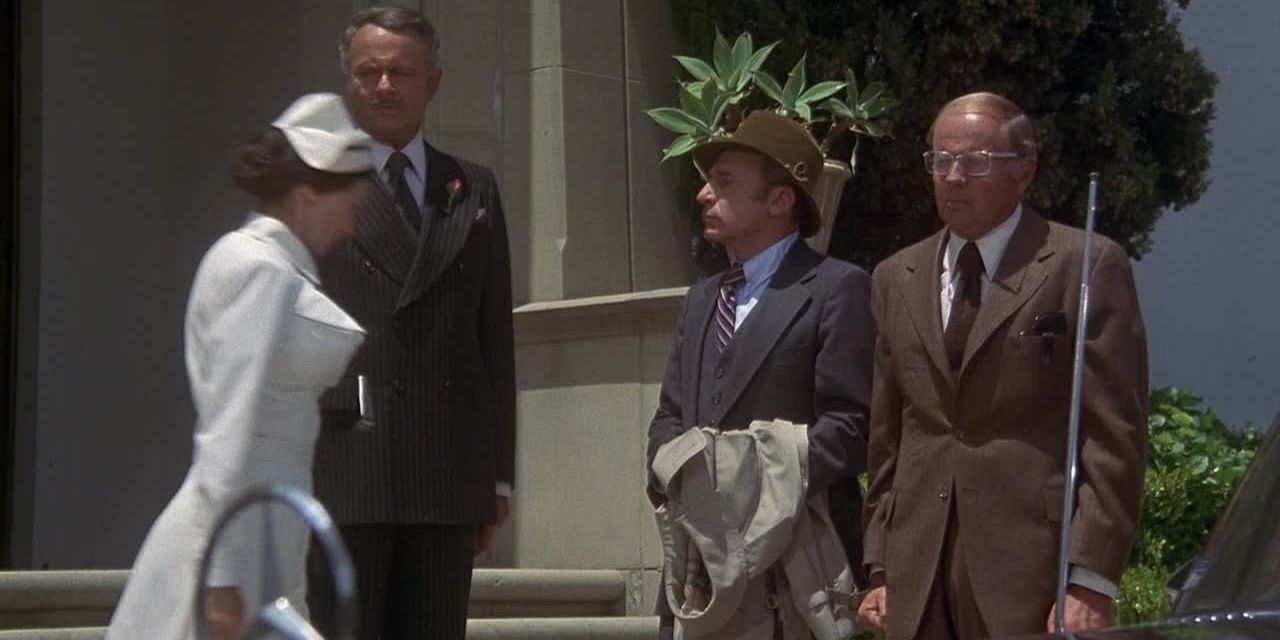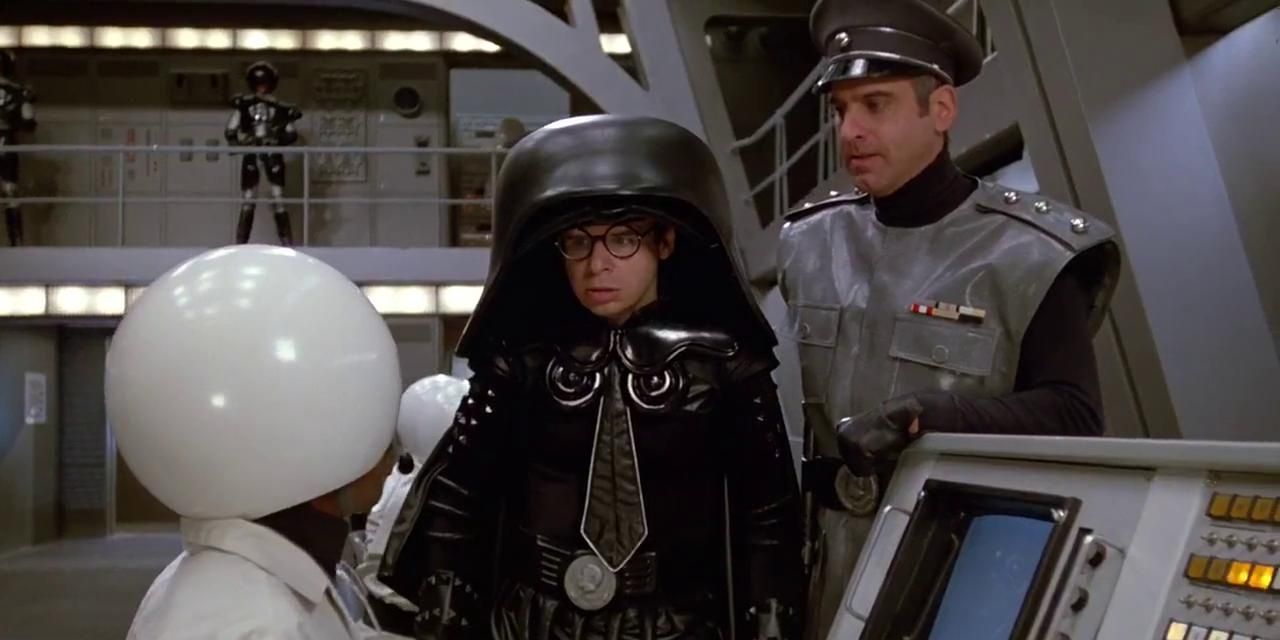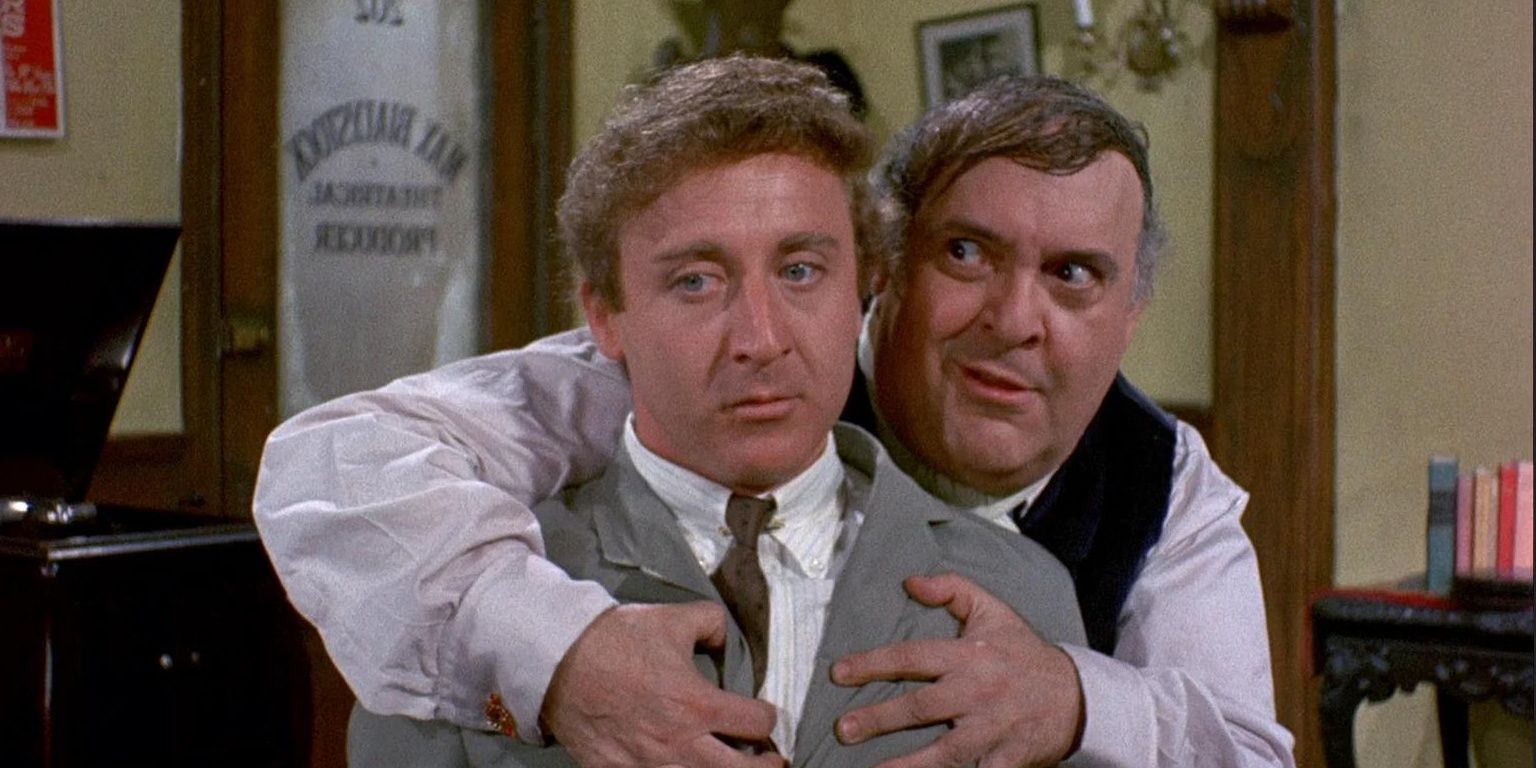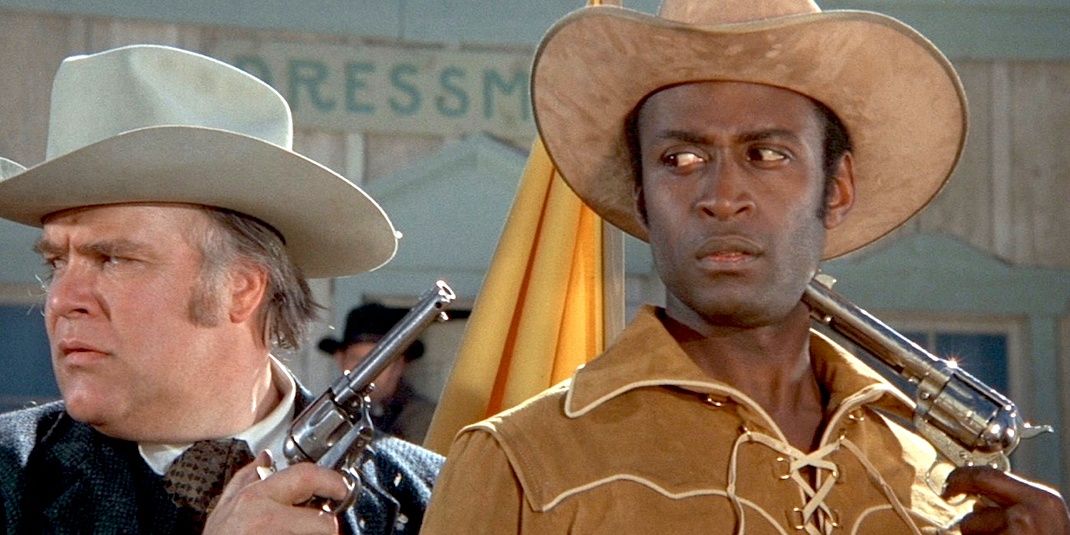One of Hollywood's greatest movie parodists, Mel Brooks was one of the 1970s' most prolific directors. Brooks began his career as a writer in the 1960s on the variety show, Your Show Of Shows. This was when the then writer began to develop his wacky, silly cinematic humor. By 1965, Brooks co-created Get Smart, a highly-acclaimed comedy show that was a precursor to his cinematic work.
Brooks would say of Get Smart: "I was sick of looking at all those nice sensible situation comedies. They were such distortions of life … I wanted to do a crazy, unreal comic-strip kind of thing about something besides a family. No one had ever done a show about an idiot before. I decided to be the first."
Young Frankenstein (1974)
Young Frankenstein is an entirely inappropriate movie parody of the 1818 novel, Frankenstein, by Mary Shelley. The 1974 movie begins with Victor Frankenstein's grandson, Frederick Frankenstein (played by Gene Wilder), now a scientist and lecturer who is fervently desperate to distance himself from his grandfather's legacy. He is unable to escape his past, however, and soon finds himself back in Transylvania to create a new monster.
The movie is completely nonsensical, adding hilarious details to the original story, such as Victor Frankenstein's secret mistress. One to push the buttons, Brooks, who co-wrote the screenplay with Gene Wilder, adds that the monster is blessed with huge proportions. Indeed, the monster's huge body parts would help him tame a wealthy socialite, who immediately marries him, for obvious reasons.
Dracula: Dead And Loving It (1995)
Another satirical comedy-horror movie, Dracula: Dead And Loving It was released in 1995, twenty-one years after Young Frankenstein. The movie has a lot in common with Young Frankenstein, including parodying a gothic classic, Dracula. Additionally, it also stars a popular Hollywood movie comedian, Leslie Nielsen. Unlike Young Frankenstein, however, Dracula: Dead And Loving It was not a box office success. The movie was Brook's final directorial role, and its box office failure can be accounted, in part, to a change in audiences' cinematic tastes, between the 1970s and the 1990s.
Robin Hood: Men In Tights (1993)
Continuing his career as a parodists, Robin Hood: Men In Tights was released in 1993 as a parody of the Robin Hood story. A musical adventure, the movie, like most of Brooks' movies, parodies classic literature and, likewise, parodies previous movies based on the same literature. As is Brook's style, Robin Hood: Men In Tights is also packed full of racy sexual jokes. The 1993 comedy film has become a cult classic over the years, because of its zany humor, including breaking the fourth wall: another comedic style for which Brooks is famous.
Silent Movie (1976)
Although satirical, Silent Movie does not parody any popular fictional novel. Instead, the film parodies slapstick comedy and silent films of the 1920s and 1930s. The movie had an all-star cast, including James Caan, Dom Deluise, Paul Newman, Bernadette Peters, Burt Reynolds, Marcel Marceau and Liza Minnelli. Silent Movie was Brooks' first starring movie role. Moreover, although it was shot with sound, the movie is edited to play as a silent movie. The story follows a movie producer and recovering alcoholic trying to get movie studios to greenlight a silent film in the year 1976.
History Of The World, Part I (1981)
History Of The World, Part I is another all-star cast comedy movie that was released five years after Silent Movie. The idea for the movie is taken from English writer and poet, Sir Walter Raleigh's book, The History Of The World, In Five Books. It starts Dom DeLuise, Madeline Khan, Cloris Leachman, Hugh Hefner, with narration from Orson Wells.
In the movie, Brooks parodies great historical classics like Cleopatra, Ben-Hur and Spartacus, telling the story of Moses and the ten commandments, the French Revolution, the Spanish Inquisition and the stone age.
The Twelve Chairs (1970)
In another parody of a classic literary work, Brooks satirizes The Twelve Chairs, itself a satirical novel by Ilya Ilf and Yevgeny Petrov, Soviet authors from the 20s and 30s. Brooks crafts an adventure journey where two protagonists, aristocrat Vorobyaninov, and street grifter, Bender, set out to find the jewels hidden by Vorobyaninov's mother-in-law's; jewels all hidden in one of twelve dining table set chairs. The movie is an allegory against greed, as the movie ends with both men never finding the jewels, despite their extraordinary efforts. In the end, both men happily accept a life of crime, reflecting their greedy nature.
High Anxiety (1977)
An obvious parody of the psychological thrillers like Vertigo, that were popular at the time, High Anxiety was released in 1977. In fact, High Anxiety's movie release poster is an obvious copy of Vertigo's. The movie begins when Dr. Richard Thorndyke begins a new job as the head of 'The Psycho-Neurotic Institute For The Very, Very Nervous'.
Apart from catching two of the doctors conducting very private business on hospital premises, other hilarious scenes take place, including a parody of the classic Psycho bathtub scene. Even more ridiculous, Dr. Thorndyke would later be attacked by pigeons in an obvious, but silly, parody of another Hitchcock classic, The Birds.
Spaceballs (1987)
Over the years, Spaceballs has become another Mel Brooks cult classic. Spaceballs is Brooks' parody of popular science fiction movie franchises like Star Wars, Star Trek, The Planet Of The Apes and Alien. Featuring characters such as Pizza The Hut, and the bushy half-man, half-dog, Mawg, the parody is not subtle at all.
As is standard of Brooks, characters in the movie humorously break the fourth wall when it is convenient to drive the story along. Featuring scenes like a giant robot maid sucking the fresh air off a planet with a vacuum, Spaceballs is one of Brooks' most brazenly silly satirical work.
The Producers (1967)
Brooks' most audacious work, The Producers is a movie about a theatre producer , Max Bialystock, who, along with his accountant, Leo Bloom, decide to produce a play so controversial, it would be cancelled after opening night. They hope that they can then escape to Rio De Janeiro with the rest of the money donated by investors.
Soon, rehearsals for the play, Springtime For Hitler: A Gay Romp With Adolf And Eva At Berchtesgaden begin, packed with insanely inappropriate praise for Hitler's fascist tendencies. Unfortunately, the play ends up a hit, and Leo and Max are imprisoned for attempting to defraud investors.
Blazing Saddles (1974)
Blazing Saddles is a very politically incorrect movie about small Western town, Rock Ridge's first ever black sheriff. The problem is intensified, because it is set in 1874, twelve years after slavery was first abolished in the US. The movie plays on offensive and racist stereotypes that racist white people possess about black and Native American people. A Western movie genre satire, Blazing Saddles received mixed reviews upon release. It was, however, popular with audiences, breaking records for box office earnings. The comedy also won three Oscar nominations, and remains a Hollywood comedic classic till today.

